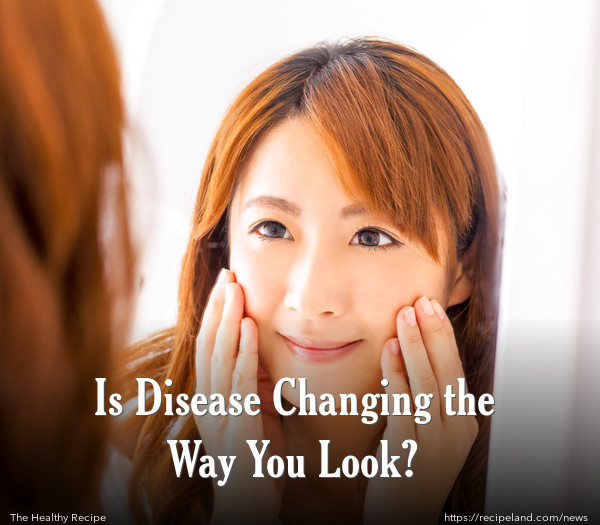When you look in the mirror, what do you see? Is a healthy, vibrant person looking back at you or do you notice disturbing issues, such as blotchy skin, puffy eyes, and unwanted facial hair? These problems aren’t just something to cover up with makeup, they could be signs of serious disease. Take an inventory of your reflection and don’t let changes slip past you.
1. Facial Shape
A change in the symmetry of your face could be a sign of stroke. If your face appears to be asymmetrical or different, talk to your doctor immediately about the possibility that you have had a stroke. You should also be concerned if you are unable to speak clearly, unable to smile fully, or if you experience numbness in one side of your face.
2. Eyes
Eyes that seem tired and puffy could be caused by a lack of sleep, but they are also a sign of chronic allergies. These seasonal allergies can cause the blood vessels under the eyes to dilate and actually leak blood in your under-eye area. This leakage causes your eyes to appear puffy and your under-eye area to be dark.
3. Chin
If you have a chin that seems to be disappearing or sinking back, you might have sleep apnea. Other physical characteristics related to sleep apnea include a small jaw or a thick neck. Sleep apnea happens when you stop breathing for more than ten seconds during sleep. This is a dangerous condition that can lead to high blood pressure and heart disease. Daytime tiredness, early morning headaches, and loud snoring are also signs of sleep apnea.
4. Mouth
You might be dehydrated if the skin on your lips is dry or flaky. You could also be experiencing a much more serious condition like diabetes or hypothyroidism. These diseases affect the ability of your body to sweat properly. Hypothyroidism occurs when your body does not make enough thyroid hormone. If you often feel tired and cold or have put on extra pounds, you could have hypothyroidism. Your dry mouth could be a sign of diabetes if you are also always thirsty, have blurry vision, and have to urinate often. Cracks around the corners of your mouth could be pointing to vitamin B2 deficiency or problems with your digestive tract.
5. Facial Hair
If you are a woman with too much facial hair you could be experiencing polycystic ovary syndrome. Extra hair on the chin, upper lip and jaw line are an indication of the extra male hormones floating through your system that are associated with polycystic ovary syndrome.
6. Eyelids
You could be at an increased risk for developing heart disease if there are yellow spots on your eyelids. These xanthelasmata, or cholesterol-filled lesions, are an indication of problems with your heart. A Danish study found that participants who had xanthelasmata experience heart attack 50% more and hardened arteries 70% more than those who did not have these yellow spots on their eyelids. The study also found that of the 13,000 participants, 4% had xanthelasmata on their eyelids.
7. Skin
Keep careful track of any changes in your skin tone and texture. A bluish tint to your lips could indicate lung or heart disease. Red bumpy skin is linked with celiac disease, a digestive disorder which triggers an autoimmune response within the body when you come in contact with gluten. Anemia is often linked with pale skin. Yellowing skin can be a sign of problems with your liver. Lupus, another autoimmune related disease, is linked to a large butterfly-shaped, mask-like rash over the nose and cheekbones. Rashes on your face could also be a sign of rosacea, eczema or infection.
8. Neck
Dark coloured, velvet plaques on the neck could be a sign of diabetes. Also called acanthosis nigricans, these skin discolouration can be caused by obesity as well. Very rarely velvety plaques will occur in other areas. If you notice them on your lips, they could indicate an internal form of cancer.
9. Nose
If your nose looks bulbous, greasy, and red you could be drinking too much. You might also notice very prominent veins on your nose. These can all be indicators of liver or heart conditions or high blood pressure as well.
As you observe changes to your appearance, be sure to talk to your doctor. These gradual changes could be signs of a deeper problem that needs to be treated.










Comments